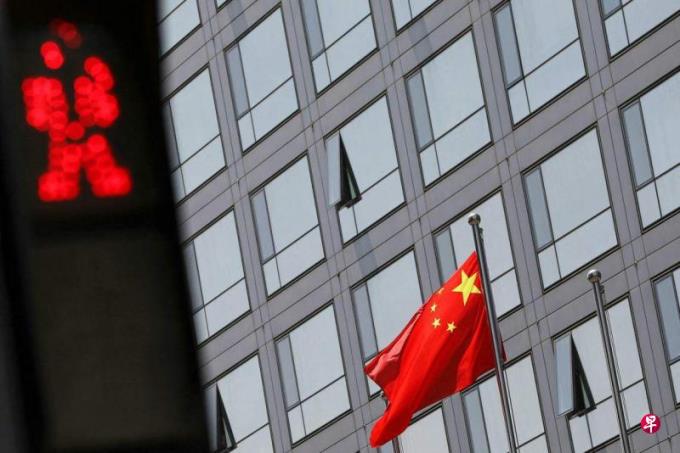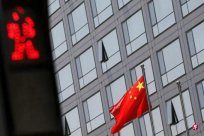
So far, Trump has occupied an overwhelming dominant position in the Republican primaries, which can be described as riding.According to this momentum, he is likely to make the White House again.Therefore, this also proposes a sharp and unavoidable practical problem for leaders of various countries: how can Trump deal with and resolve its aggressive style of acting?Especially in the face of Trump, who faced the Second Palace, he can no longer use "no chapters to follow".In fact, the late Japanese Prime Minister Shinzo Abe provided us with a very rare case. It is worthy of learning from politicians from all countries to take the initiative with passiveness and disadvantages.
When Trump was just elected in 2016, many leaders including Japan, including Japan, were worried.As the former Minister of Defense Ono Temple, former Japanese Defense Minister Ono said to Reuters: "If you have heard Trump's remarks, I think the United States' allies will be worried.""Safety cars", and condemned Japan to control the exchange rate, and obtained unfair economic advantages, saying that Japan and China and Mexico are both countries that "impact our trade".
In the face of the aggressive Trump, how should Abe go and how to resolve this sudden diplomatic crisis?From Abe's next state -of -state activity, we can see that the diplomatic strategy he chose is to take the initiative to attack, avoid reality, "bend and attach", with Roukegang, to maximize the state of national interests that are not damaged.
When Trump won the president, Abe immediately rushed to New York to meet him.Later, Trump's visit to Japan, Abe even voted for him, accompanied the golf throughout the process, won his great impression, opened a good game for future Japanese and American negotiations, and laid a solid foundation.
When they hit a golf, there was a good story. When Abe crawled into the bunker quickly, he accidentally fell his four feet to the sky (after all, he was in his 60s), but immediately turned over and rushed up.In this regard, Trump, who is famous for his big mouth, responded: "I am very moved by this. This is a wonderful action that I have seen so far." Although there is a trace of ridicule in the wordsIt tastes, but it is difficult to hide the feeling of admiration.For the sake of national interests, Trump must feel the same.
Afterwards, the host of a TV station in Japan, in front of the Prime Minister's face, returned to the video and climbed up the video.Solemnly, how can you do it? "How can it do if the diplomatic figure of the great power is not flexible?" It is this sentence that makes the author respectfully, and it is still impressive and emotional.Yes, can the diplomacy of a country be flexible and changeable?Especially in the intricate international situation today, a little carelessly causes the state to be disadvantaged due to imbalance in international relations and harm national interests.
Sun Tzu's military law has a saying, "The soldiers, the great things of the country, the place of death, and the way of survival, must not be inspected."In fact, is it the same outside of the country?Therefore, the author has always believed that a country's diplomacy is like taking a balanced wood. The better the balance, the better the national interest.On the contrary, it is bound to take care of each other, left branch right.
China is undoubtedly a big country today, and the diplomacy of large powers cannot be ignored.For example, China's actively implementing the Belt and Road strategy must not only face the balance of South Asia -India -Pakistan conflict areas, but also face the sensitive challenges between Central Asia (especially those Soviets to join the Republic), West Asian countries and Russia.
Just as the senior national defense analyst of Rand Corporation, Grosmann pointed out: "The close relationship between China and Pakistan further exacerbates India's concerns. As a hostile neighbor of India, Pakistan is one of the main participants in the Chinese area.The model engineering advocated along the way, through the China -Pakistan Economic Corridor through the Pakistani area, triggers a lot of controversy.India has quickly fallen to the United States. This is a big thrust behind the US -India Alliance in the near future.
For example, the relationship between Iran and Israel has always been sharp. When China decides to have a further relationship with Iran's development in foreign decisions, it should fully analyze and carefully judge the possible response of Israel.Especially in the West has a pivotal status and influence.Therefore, when China announced last year that it would invest 400 billion US dollars in Iran, Negel, chairman of the former National Security Council of Israel, and Dubovitz, CEO of the "Defending Democratic National Foundation"Keep the same front with the West, stay away from mainland China, and re -evaluate the relationship with Taiwan.These are important influences on the interests of the Chinese national.
"There is no diplomacy for weak countries" is not inevitable
When it comes to Israel, the author also wants to comment on the saying of "weak countries without diplomacy" that many people have always believed.There are too many examples of argument in ancient and modern Chinese and foreign.Internationally, the most typical example in this regard is the founding of Israel and the founding of Singapore, which are serving the country after World War II.Although the territory of the two countries is small, they can dance and dance on the international political stage and meet the source.What is their international performance without diplomacy?I am afraid that many big powers are also at reach.
Examples of ancient China are even more general.Recalling the diplomacy of the princes of the Spring and Autumn Period and the Warring States Period, it is understood that the weak country not only has diplomacy, but also often exceeds the strong country.Regardless of whether he can be a weak country, he can not be afraid of Qin Qin, and return to Zhao, or Yan Zi makes Chu, not only herself is not humiliated, but also protects Qi Guowei. In turn, he feels ashamed of King Chu.
Similarly, the Republic of China, which is full of powers and the wind and rain in modern times, is also a weak weak country. However, Chinese diplomats represented by Gu Weijun can respected and seek the greatest national interests.Facing China's diplomacy in the Republic of China, Gu Weijun once pointed out that good diplomacy is resilient and decisive.The so -called "wisdom" is that diplomats must systematically study the higher knowledge of international law; "brave" must have a strong determination.
Although international diplomacy in the early 20th century has the prevalence of strength in the jungle law, there is power and no axioms, as Gu Weijun said: during international negotiations, if you can fight for power with axioms, power cannot be wiped out in one hand and can be wiped out and killed.axiom.Isn't this the reason why weak countries also have diplomacy?The key depends on how to fight for strong powers with axioms, depending on how the diplomats in the weak country do to speak.In his later years, Gu Weijun also said with a long -term saying: "When handling important diplomacy, the first thing that affects you should first consider is national interests and national interests.Chuan)
Isn't this what Abe thought?In the face of many people's mockery of his funeral and self -descending identity, Abe responded frankly with gentlemen and leopards, and explained that he did this "is not a leopard to protect himself, but for the country and the people, you can abandon your face.This is what we should have as a leader.Although from the Yi Jing · Ge Gua, Abe's use can be described as blue and better than blue. The transformation of the gentlemen and leopards that the ancients of the ancients of China were sublimated to the height of "change" for national interests and the well -being of the people.This is just another example of the Japanese people who integrate the Chinese classical essence and Western diplomacy concepts. It is also worthy of serious understanding and concentrated learning of every true diplomat in the world.
The author is a doctor of law at the University of Berlin, Germany, researcher at the Ash Democratic Governance and Innovation Center of Kennedy College of Harvard University




